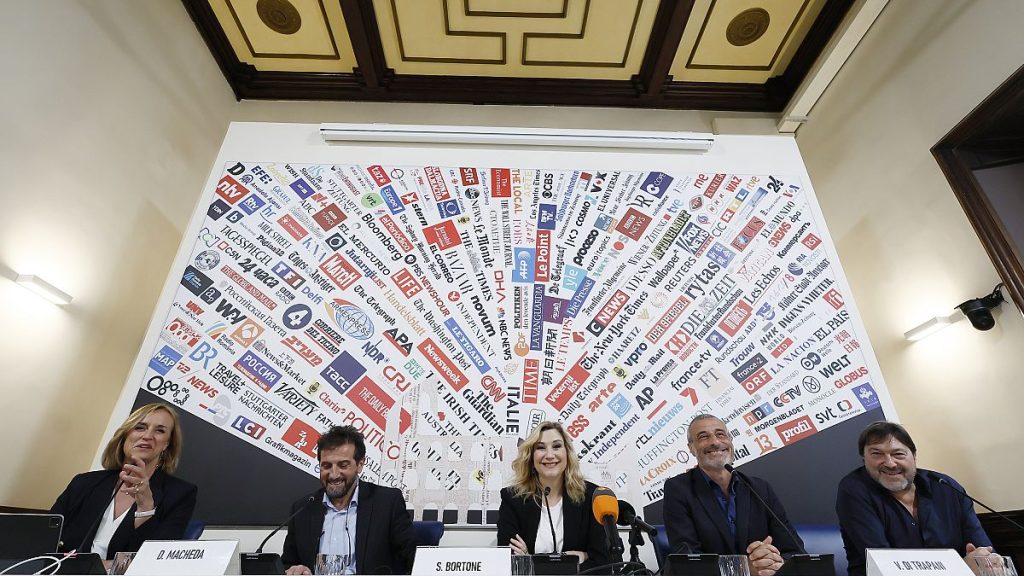The union representing three-quarters of Rai’s journalists accused Prime Minister Giorgia Meloni and her coalition partners of attempting to make the public broadcaster a mouthpiece of the government. They declared a 24-hour strike in protest of alleged editorial interference and poor working conditions. Rai’s management responded by accusing the union of striking for ideological and political reasons, denying any risk to current employees’ rights or jobs, and affirming their commitment to pluralism and freedom of expression. Another union, Unirai, called on its members to cover the shifts of those striking, prompting accusations of links to Italy’s right wing.
During a press conference, Rai journalists criticized the cancellation of writer Antonio Scurati’s scheduled appearance on a television program due to financial reasons. Scurati’s text, critical of Meloni’s party with connections to Italy’s neo-fascist movement, prompted controversy. Meloni herself has criticized Rai, particularly over an investigative program concerning a migration deal she struck with Albania. This deal has faced opposition from various groups and political parties. The strike occurred shortly after Reporters Without Borders downgraded Italy in its press freedom index, citing concerns about the proposed acquisition of Italian news agency AGI by a politician from Meloni’s party and reports of budget tightening at Rai.
The strike by Rai journalists follows protests over company budget tightening, including hiring freezes and job eliminations, which they believe are aimed at reducing Rai to a government megaphone. Journalists in Italy have raised concerns about threats of defamation lawsuits or criminal complaints by individuals targeted in investigative reporting. This pattern has been exacerbated under the right-wing coalition government of Prime Minister Meloni, leading to increased tensions between journalists and the government. It is seen as part of a broader assault on press freedom and freedom of expression in Italy.
The strike highlights the broader issue of threats to press freedom and freedom of expression in Italy, particularly under the current government. Journalists at Rai have taken a stand against perceived efforts to undermine their autonomy and turn the broadcaster into a propaganda tool for the government. The involvement of politicians in the media landscape, including proposed acquisitions of news agencies and criticism of investigative reporting, raises concerns about the independence of the press and its ability to hold those in power to account. The strike by Rai journalists is a symbolic gesture in defense of journalistic integrity and the public’s right to unbiased and independent news coverage.
The tensions between Rai journalists and the government reflect deeper societal divisions in Italy, particularly around issues of historical memory and political ideology. The cancellation of a critical writer’s appearance on a TV program and the subsequent backlash highlight the ongoing debates about Italy’s fascist past and the legacy of authoritarianism in the country. The strike by journalists is not just about labor rights or working conditions but is also a statement about the role of the media in a democratic society and the importance of independent journalism in holding those in power to account. It is a reminder of the ongoing struggle for press freedom and freedom of expression in Italy and the challenges faced by journalists in upholding these democratic values.


